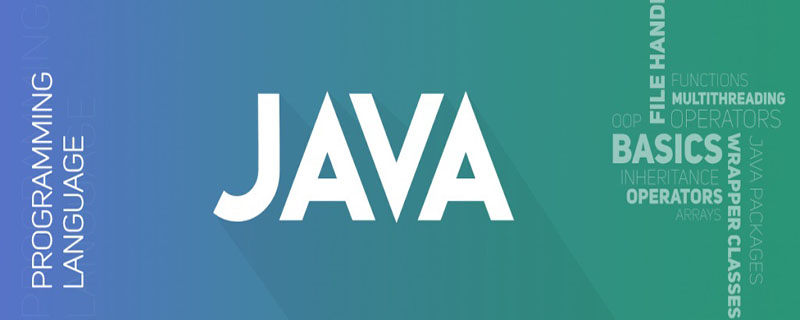When to use transactions in java

When to use transactions?
1. If in actual business, a piece of data needs to be stored in two tables at the same time, and the data in the two tables are required to be synchronized, then a transaction management mechanism needs to be used to ensure data synchronization. If an error occurs, for example, data insertion into table 1 is successful but data insertion into table 2 fails, then it will be rolled back and the data persistence operation will be terminated.
2. Software development in the financial industry strictly attaches importance to transaction processing. For example, in our common transfer operations, the amount of one party's account decreases, which corresponds to the increase of the other party's account amount. This process requires the use of transaction mechanisms, otherwise The transfer cannot be successful.
Free learning video tutorial sharing: java video tutorial
Take JDBC transaction processing as an example:
public static void main(String[] args) throws SQLException, ClassNotFoundException {
Class.forName("com.mysql.jdbc.Driver");
String url = "jdbc:mysql://localhost:3306/user";
String user = "root";
String password = "123456";
Connection con = (Connection) DriverManager.getConnection(url, user, password);
try {
//取消自动提交
//如果设成false,那就是JDBC不自动提交,需要手动的使用commit或者rollback来进行提交或者回滚数据.
con.setAutoCommit(false);
Statement stmt = (Statement) con.createStatement();
//进行数据插入
String sql = "insert into users(email,password) values('" + "jack@163.com" + "','" + "jack" + "');";
boolean flag = stmt.execute(sql);
System.out.println(flag);
//人为制造一个错误,结果就是数据库并没有插入这条数据,也就是数据发生了回滚
//异常被捕获之后,就不在执行下面的语句,而是执行catch中的语句
//如果没有异常,数据就会被提交到数据库
System.out.println(1/0);
//手动提交
con.commit();
} catch (Exception e) {
//如果发生错误,就回滚
con.rollback();
} finally {
con.close();
}
} Recommended related article tutorials: java Getting Started Tutorial
The above is the detailed content of When to use transactions in java. For more information, please follow other related articles on the PHP Chinese website!

Hot AI Tools

Undresser.AI Undress
AI-powered app for creating realistic nude photos

AI Clothes Remover
Online AI tool for removing clothes from photos.

Undress AI Tool
Undress images for free

Clothoff.io
AI clothes remover

AI Hentai Generator
Generate AI Hentai for free.

Hot Article

Hot Tools

Notepad++7.3.1
Easy-to-use and free code editor

SublimeText3 Chinese version
Chinese version, very easy to use

Zend Studio 13.0.1
Powerful PHP integrated development environment

Dreamweaver CS6
Visual web development tools

SublimeText3 Mac version
God-level code editing software (SublimeText3)

Hot Topics
 1359
1359
 52
52
 Square Root in Java
Aug 30, 2024 pm 04:26 PM
Square Root in Java
Aug 30, 2024 pm 04:26 PM
Guide to Square Root in Java. Here we discuss how Square Root works in Java with example and its code implementation respectively.
 Perfect Number in Java
Aug 30, 2024 pm 04:28 PM
Perfect Number in Java
Aug 30, 2024 pm 04:28 PM
Guide to Perfect Number in Java. Here we discuss the Definition, How to check Perfect number in Java?, examples with code implementation.
 Random Number Generator in Java
Aug 30, 2024 pm 04:27 PM
Random Number Generator in Java
Aug 30, 2024 pm 04:27 PM
Guide to Random Number Generator in Java. Here we discuss Functions in Java with examples and two different Generators with ther examples.
 Armstrong Number in Java
Aug 30, 2024 pm 04:26 PM
Armstrong Number in Java
Aug 30, 2024 pm 04:26 PM
Guide to the Armstrong Number in Java. Here we discuss an introduction to Armstrong's number in java along with some of the code.
 Weka in Java
Aug 30, 2024 pm 04:28 PM
Weka in Java
Aug 30, 2024 pm 04:28 PM
Guide to Weka in Java. Here we discuss the Introduction, how to use weka java, the type of platform, and advantages with examples.
 Smith Number in Java
Aug 30, 2024 pm 04:28 PM
Smith Number in Java
Aug 30, 2024 pm 04:28 PM
Guide to Smith Number in Java. Here we discuss the Definition, How to check smith number in Java? example with code implementation.
 Java Spring Interview Questions
Aug 30, 2024 pm 04:29 PM
Java Spring Interview Questions
Aug 30, 2024 pm 04:29 PM
In this article, we have kept the most asked Java Spring Interview Questions with their detailed answers. So that you can crack the interview.
 Break or return from Java 8 stream forEach?
Feb 07, 2025 pm 12:09 PM
Break or return from Java 8 stream forEach?
Feb 07, 2025 pm 12:09 PM
Java 8 introduces the Stream API, providing a powerful and expressive way to process data collections. However, a common question when using Stream is: How to break or return from a forEach operation? Traditional loops allow for early interruption or return, but Stream's forEach method does not directly support this method. This article will explain the reasons and explore alternative methods for implementing premature termination in Stream processing systems. Further reading: Java Stream API improvements Understand Stream forEach The forEach method is a terminal operation that performs one operation on each element in the Stream. Its design intention is




